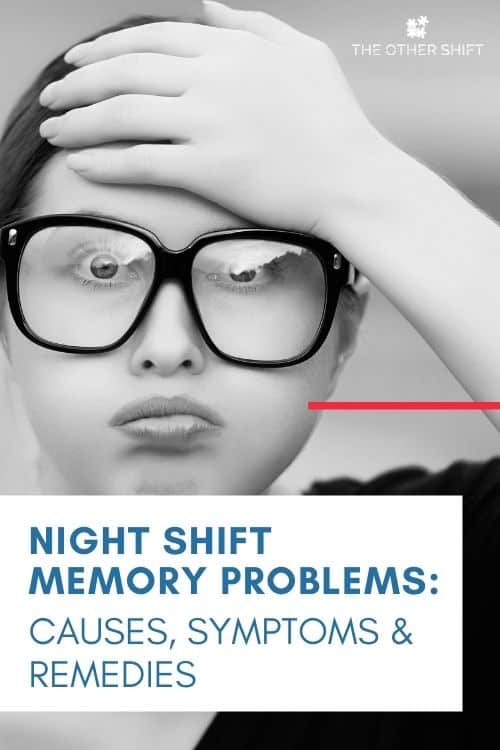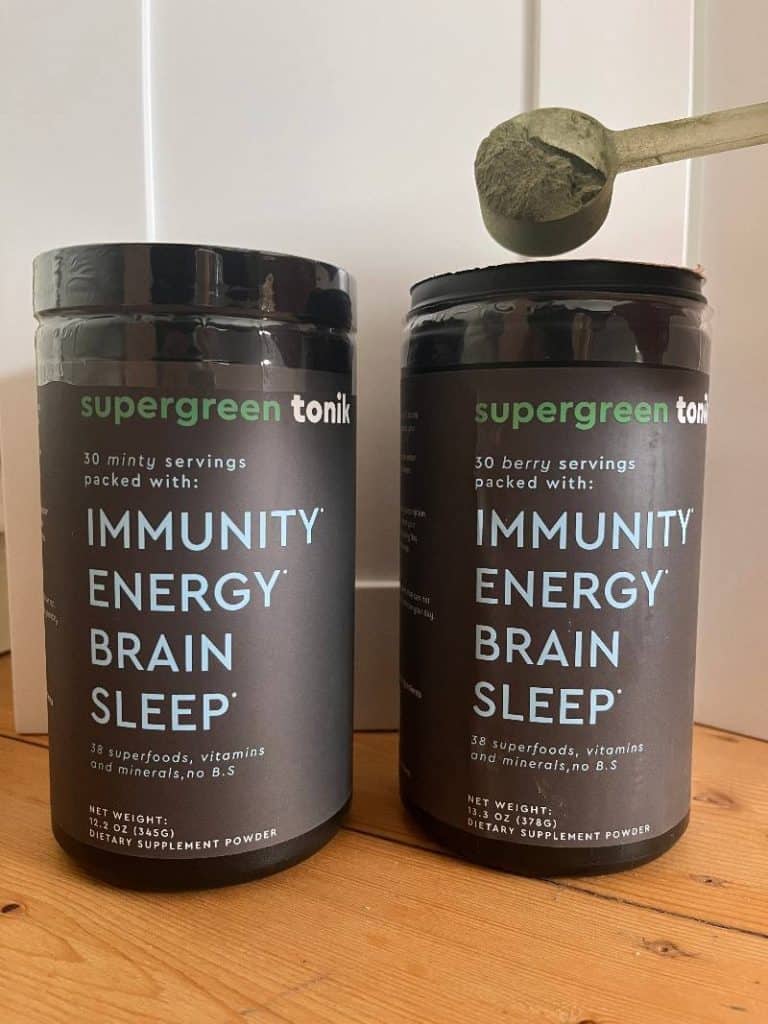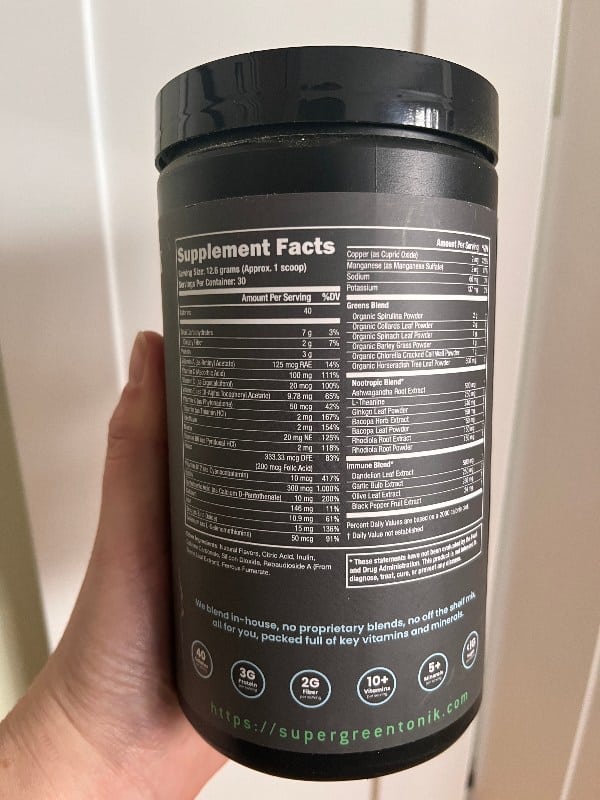Disclosure: This page may contain affiliate links, meaning we receive a commission if you decide to make a purchase through our links, but this is at no additional cost to you. Please read our disclosure and privacy statement for more info.
People who work the night shift have been found to experience a greater decline in memory and cognitive function than daytime employees. In a world that never stops running, these disturbances in the brain’s activity pose a threat to the safety of both the night shift worker and anyone they encounter. So what brings this on for night shift workers and how can we slow symptoms occurring?
Night shift memory problems primarily occur because of the body’s circadian clock disruption. Symptoms associated with the misalignment include fatigue and reduced attention to detail. Action to combat these issues includes a consistent sleep/wake cycle, playing strategy games along with improved diet and lifestyle.

Working the night shift often requires a significant amount of personal sacrifice and adjustments to your daily life. But that doesn’t mean you have to give up your mind and health. Learning ways to overcome the upheaval night shift work causes your circadian clock begins with understanding the source of the problem.
Tick Tock of Your Circadian Clock
Most people are comfortably familiar with their body’s biological clock. It’s the one that dispurses the hormones associated with growth, development, and human reproduction. But there is another clock in your body that impacts every aspect of your health and mind.
Your circadian clock’s primary function is the regulation of your body’s wake/sleep cycle. This is commonly referred to as your circadian rhythm. Think of it as your personal internal solar-powered alarm clock without the annoying buzzer or startling noise.
When the sun rises, shining its brightest white light through your bedroom window, it triggers the release of serotonin from the pituitary gland in your brain. Often called the feel-good hormone, serotonin plays a vital role in a number of important bodily functions. Everything from mood, energy levels, digestion and heart health is impacted by your body’s level of serotonin.
The circadian rhythm system is the control center for most of the hormones in the body. These natural chemicals influence whether you feel happy or sad. They aid your mind and body to stay alert and focused. They even play a part in controlling your body temperature and other vital functions necessary for a healthy life.
Working the night shift disrupts this natural rhythm. Your body and mind are at odds with this reversal of time spent awake and asleep. Studies have indicated that no matter how much sleep you are able to get during the daylight hours, the body always wants to follow the innate schedule of the circadian clock. Which is a challenge for us night workers!
Just as the morning light of the sun kick starts your wake cycle, the oncoming darkness tells the mind it’s time to slow things down and rest. The pituitary gland is instructed to begin the release of melatonin and the feelings of sleepiness ensue. It is at this stage of the circadian rhythm game that your body and brain take care of urgent business.
Normally, when a person sleeps at night, the mind and body are hard at work. While you’re asleep and dreaming, the body begins its job of making repairs and recovering from the stresses of the day. Most importantly, time spent sleeping gives the brain the opportunity to sort through the files of thoughts and actions and store the important things into long-term memory.
This is likely one of the major factors that contribute to night shift workers having trouble with memory and cognitive functioning. Being awake all night doesn’t give your mind a chance to move memories around as it traditionally would. Nor does it stick to the standard allocation of the body’s resources of self-healing that transpires in the normal wake/sleep cycle.

Symptoms of Night Shift Circadian Disruption
The prominent symptom associated with a misaligned circadian clock that contributes to memory problems is fatigue. More than just feeling sleepy, fatigue affects your ability to think clearly. It also impairs the speed of your reflexes and slows your reaction time.
Brain fatigue leads to bad moods, short tempers and poor judgment. In turn, brain fatigue can lead to mistakes being made or misunderstandings between co-workers (and even your family once you get home). Any one of these can create a hostile and dangerous work environment.
Body fatigue causes impairments to your motor skills. Muscles become weaker and your ability to perform your job safely is put into jeopardy.
This is especially concerning for night shift workers whose job requires any heavy lifting or involves the movement of others such as when caring for patients.
The disruption to your circadian rhythm from working the night shift often leads to sleepiness while on the job. As a result, you have greater trouble paying attention and staying focused. On the flip side, the reversal of your sleep/wake schedule can cause difficulties falling asleep during the day from feelings of restlessness.
Night shift workers suffering from fatigue, sleepiness and brain fog affect the population as a whole both on and off the clock. Emergency rooms staffed with drowsy doctors and nurses put patients at risk of harm. Police officers out on patrol in the dark of night risk misjudging the situation when their fatigued mind sees a weapon that turns out to be a cellphone.
Drivers on the night shift transporting goods along our highways put others in danger if they nod off behind the wheel for even just a second. Big city cab drivers and public transportation bus operators are risking the safety of their passengers when night shift fatigue gets the better of them. In fact, fatigue-induced car crashes are the number one cause of occupational deaths in the United States (source).
Related video – Driving Tired After Night Shift: Tips to Get Home Safely
Circadian rhythm fatigue is believed to be the reason night shift workers are more susceptible to developing metabolic issues as well. Health conditions like diabetes have been linked to long-term disruptions to the body’s natural circadian clock. Researchers have found that night shift workers have a greater risk of obesity, high blood pressure, high levels of triglycerides, high cholesterol, and increased levels of glucose.
[VIDEO] – Are Night Shifts Bad For You? Stop Them Ruining Your Health
Night Shift Memory Remedies
Preventable measures can be taken to minimize the negative impact of night shift work on your circadian clock.
Pay close attention to your level of light exposure
The key is to emulate the natural day/night cycle your internal clock is built to follow. Through the use of light and darkness, you can shift your circadian clock and reduce the risk of memory problems and health issues.
During your evening awake hours, exposure to bright white light can mimic the effects of the sun and stave off the release of melatonin. Avoid too much exposure to blue light emitted from LED lighting and electronics like televisions, computer monitors, and hand-held devices such as tablets and phones.
While blue light has been shown to help deter the release of the sleep hormone melatonin, studies are finding it has a darker side. This type of light in high doses can lead to retina damage and macular degeneration.
More studies need to be done to confirm these findings as we find our lives bombarded by this low-energy high beam bright light. From the light fixtures in the ceilings to the screen on our cellphones, LED blue light shines from every corner. Switching back to standard light bulbs can help but may prove difficult if you live where the eco-wave has taken full control.


Create the ideal sleeping environment
For your daytime hibernation hours, creating a sleep environment void of light to simulate night is the first step towards better sleep. Using heavy, dark-colored blackout curtains on your bedroom windows will eliminate the sun’s chances of stirring up your serotonin reserves. Be sure to wear dark sunglasses if your commute home occurs during daylight hours. This will prevent reinvigorating your wake cycle just as you’re needing to wind down.
Another change you may need to incorporate into your slumber chamber for the best rest is controlling the ambient sounds. If you’re like me, extinction of sound is quintessential to the achievement of restful sleep. Finding ways to soundproof your bedroom will provide you the serenity you need to clock out when the rest of the world is just clocking in.
If you’re like many other people, you need the noises of the world outside your window to drift off to dreamland. Sometimes those particular sonance of your habitat only occur during the evening hours. So if you need the sound of crickets chirping and owls hooting it may be wise to invest in a machine that can recreate your bedtime lullaby. (Such as this popular one on Amazon)
What do you do if you’re more comfortable falling asleep to the sounds of big-city nightlife but outside it’s quiet as a whisper outside? Creating your own playlist of music beats mixed with sounds of traffic and people will fill the void of comforting sounds. What’s important is to implement changes to your sleeping environment that align with the time of day your circadian clock must think it to be.
In the video below, I talk extensively about creating an environment that allows you to fall asleep easily, despite the chaotic world around you. This video and many more can be found on our YouTube channel.
Night Shift Habits and Diet
Once you have made all the possible changes to your external environment, it’s time to evaluate lifestyle factors. Making changes to eating habits and how you spend your time requires commitment. Taking a few small steps towards healthier behaviors and nourishment will lead to bigger strides toward restored wellness.
Healthy Habits
- Practice meditation and harness the powers of mindfulness. Mental focus is acquired when you are able to quiet the distractions and be fully in the moment you are experiencing. You are better able to remember those things you took the time to aim your attention upon.
- Reduce or refrain entirely from consuming alcohol. While some believe a pinch of booze will help them drop off to sleep, alcohol use is detrimental to your short-term memory. These are your day-to-day, where’d I put my keys, kind of memories.
- Play games or activities that stimulate the brain. Putting together puzzles, completing crosswords, or playing games requiring strategy keeps the mind thinking and solving problems.
- Exercise or participate in activities that get the heart pumping as often as you can. Strive for a daily blast of physical fitness for at least 15 minutes. A sedentary lifestyle will certainly exacerbate the metabolic strain night shift work already creates. Take advantage of opportunities that get you on your feet more at home or at work. Here is how I find the time to exercise.
- Participate in social engagements to help you reduce levels of stress and feeling of depression. Staying connected to others is essential to our emotional and mental health. Being part of a community gives you a sense of identity, an affinity for harmonious relationships and empathy for humanity.
- Maintain an organized household and workspace. Have a calendar handy for making notes of important events. Create checklists, grocery lists, and to-do lists wherever applicable so that you don’t have to be concerned with what you forgot.
Wholesome Nutrition
- Cut back on your sugar intake. Energy received from eating sweets burns up quickly in the body. You will feel an immediate surge of vigor but only briefly before you’re plummeting back towards greater levels of fatigue and tiredness than before.
- Add a healthier form of sweetness by eating more dark chocolate. Brimming with heart-healthy flavonoids, dark chocolate stimulates neurons and blood vessels to grow. This increases your body’s blood flow and improves the oxygenation of your organs, especially the brain.
- Spice up your cooking with turmeric curcumin and you’ll be fortifying your diet with a powerful antioxidant. This natural supplement has anti-inflammatory properties to help relieve conditions like arthritis. It has also been recommended to treat metabolic conditions such as ulcers, diabetes, and high cholesterol.
- Try drinking SuperGreen TONIK. Hands down our favorite powered green juice on the market. Dan and I enjoy a spoonful mixed with some water each and every morning and it’s the perfect start. Use “OTHERSHIFT10” for 10% off your order.
- Increase your levels of Vitamin D. Our bodies can produce this essential vitamin but it requires the help of the sun. As a night shift worker sleeping during the day, supplementing a Vitamin D deficiency relies on a proper diet. Fortified milk, cereals, and certain fish are packed with this crucial building block.
- Incorporate more Omega-3 into your diet by eating more seafood and fish or by taking a daily supplement. These fatty acids found in foods reduce your risk of heart disease and have shown some improvement to your brain and eye health. Other studies have found Omega-3 is useful for reducing inflammation in the body.
- Maintaining a healthy weight is the most effective form of preventing a decline in brain function and mental wellbeing. It reduces the risk of premature death that comes from pushing your body to unhealthy extremes. Obesity puts unnecessary strain on your heart, lungs, and muscles resulting in higher rates of fatigue. Problems from being underweight can include malnourishment, bone loss, and issues with skin and hair health
VIDEO – Night Shift Weight Gain: Stop a Blow-Out Tonight
In summary, night shift work can impact your memory if left unchecked. But like most things for night shift workers, with an understanding of what you’re up against and some discipline to remedy it, your issues can be harnessed very quickly and won’t become issues any more.
In some situations, it’s nice to have a selective memory. But when it comes to your job performance, you don’t want to leave anything to chance!
Cheers,

Disclosure: This page may contain affiliate links, meaning we receive a commission if you decide to make a purchase through our links, but this is at no additional cost to you. Please read our disclosure and privacy statement for more info.
Recent Posts
An examination of the night shift professions, that while sometimes underappreciated, are necessary for civilization, in its current form, to exist. A city can be thought of as a machine. Each...
Culminated from an exhaustive yet well-funded journey into the night, this article will prepare you for life outside of work while being a denizen of the dark. During days off, night shift...



